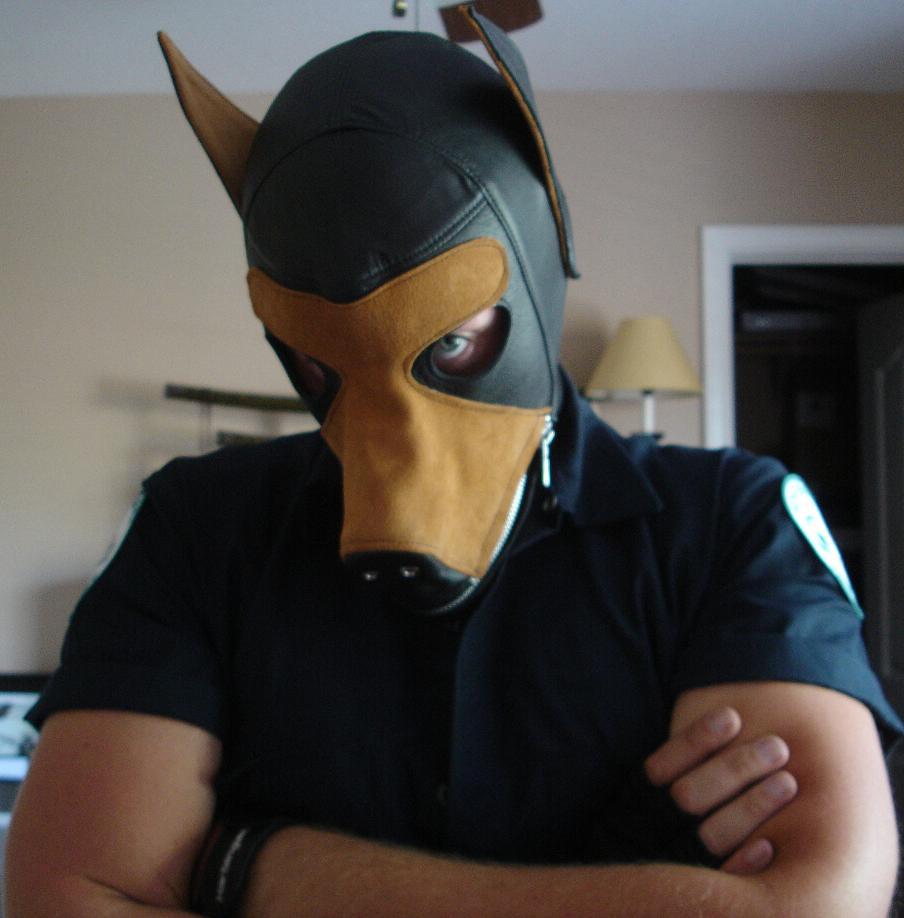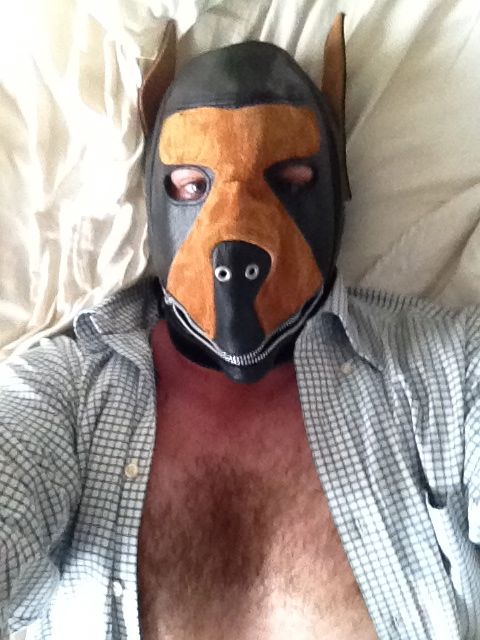What is an Alpha pup?
Many in human pup play perceive the role of an Alpha as something you are born with, a natural expression of an innate pup behaviour. It isn't. Being an Alpha pup is really a set of skills, not a type of person. And like most skills, they can be learned. Rather than simply define the label of what an Alpha is percieved as by many, let's instead walk through the process of becoming one to truly understand it better.
Some pups try to behave like an Alpha and notice that it feels awkward. Like any new skill, Alpha behaviour will feel awkward for a while until it becomes familiar,. Gradually a pup will assert himself as an Alpha as second nature. In the process of learning to be an Alpha it's important to allow yourself to make mistakes. When they do happen, remind yourself that you are supposed to be making them. Errors are vitally important as they provide opportunities to fine tune your skills. Becoming an Alpha pup means becoming more comfortable with risk and allowing errors to occur. Being an Alpha pup you then have an understanding of new pups and can help them learn from their mistakes and develop 'cause you have been there yourself.
Alpha pups are often defined as dominant and assertive. It is a common mistake that Trainers and Pups make to think that it is necessary for the Alpha to be asserting his role as Alpha pup - Top Dog - all the time. The point in learning to be an Alpha is to have the "option" to "be an Alpha", even if you don't choose to use it. Dominance and submission come as part of the package in human pup play, but they are too often over-emphasised with an Alpha. Can an Alpha be fucked by other pups and still be Alpha of his pack? Sure can. The role of Alpha is not purely defined by being the pup who bosses everyone else around and gets his own way over others. We have a name for that in human society - it's called being a bully. A pack with a bully won't be a happy pack for long. The key to an Alpha's dominance and position in the pack is not constant assertion, it is how and when he does it.
As an Alpha you are a master of timing. In most situations of training, and even in play you have the right to delay your answers and response to your Owner and Trainer. Most Owners and Trainers expect a pup in his pack to respond to masters requests promptly, if not immediately. An Alpha will pause and think the situation in front of him through. Alpha's are mindful of what is going on because they have a responsibility that comes with the title - watch out for the pack and other pups at all times. His Owner and Trainer understands that an Alpha demonstrates loyalty and fealty by Alpha attending to the whole pack, not just his master.
As mentioned earlier, the role of Alpha is usually simply defined as the leader of the pack, the top dog. A problem arises or a confrontation is going to occur, and many pups think the Alpha should be barking and being hostile and 'doing something aggressive'. A misconception born of real canine behaviour. It's a simplistic view, and when a confrontation occurs the simple view of the role really breaks down and fails to help those involved. When facing a confrontation or conflict an Alpha does his best to remain calm. Yes calm. A heart of stone not one of fire.
Most often an Alpha will have to deal with a rowdy pup. and that is not always easy. A good Alpha will do the following process. Firstly, he will not resolve the issue that is causing conflict immediately. Alpha will pause and assess the situation, looking to see what action his master is taking, and then act. In the canine world simply barking aggressively and reacting immediately works, but the human mind is more complex - even when pups are in pupspace they still have a human mind and decades of response ingrained in reacting to confrontation aren't totally abandoned no matter how hard your cock is and how much you feel you are a pup. Alpha will sensibly defer responding to the issue. He may appear aloof, but he is waiting for himself and the other pup to cool down. Bark offs might seem fun, but they can be enormously unproductive and emotionally damaging to the the pack when they are the way of resolving trouble. It's best for the pups to keep barks as fun and play, and warning - not assertion. An Alpha only barks at other pups in play, never in conflict.
During a conflict or confrontation master will attend to the other pup, leaving Alpha to his own devices. An Alpha pup learns independence from his earlier training and uses it. A Sirius Alpha pup has some tools to calm himself down rather than needing to be controlled and reassured by master. Alpha will take control of his breathing, taking slow deep breathes to calm his body down and let the adrenalin pass. Sometimes Alpha will put that adrenalin to use instead, and burn it off. A brief run, some push ups or squats if they are easier, will burn out the stress response. If possible Alpha will create some physical distance for a limited time from the pup he is confronting. Whether it is to go for a walk or just to sit in another room, Alpha won't be avoiding and staying away forever. The time apart allows Alpha to think and gain perspective, and re-approach pup and the pack calmly and acting on what he has decided to do - not reacting in the moment by surprise.
Dealing with conflict is where an Alpha is fundamentally different to other pups. It is his job to deal with trouble, alongside his master. It is resolved once tempers have cooled down, not left to a future date. Often by the time a pack are all together again it will be hard to remember the details properly and the relevance of things accurately.
When engaging with others in the pack in the role of Alpha, he will keep his communication tight and controlled. It might be tempting to give explanations and impart wisdom to other pups. but justifications cause problems. They can on occasion be at cross purposes to an Owner Trainers instruction, and give mixed messages. And explanations can be seen as encouragement for other pups to challenge reasons rather than deal with the statement or request. Alpha communication is best kept trimmed down to the basics.
What is the difference between an ordinary pup and an Alpha pup?
On the surface it looks to be a simple hierarchical position to be an Alpha. Like a prison or gang, you are top dog. It is really much more than that. An Alpha is in charge of his own behaviour. Other pups are constantly governed by master, but Alpha controls him own actions while leaving the pack to follow his lead and serve master. Ordinary pups believe that their Owner and Trainer controls them. They pass control over to their master. It is part of the role of being a pup in the pack and being owned. Even Alpha does this. Remember how I said the role is there for when you choose it? There will be times that Alpha wants to cede control and just be under his Owners guidance.
Alpha's are also the leaders by example in a pack. When a pup becomes frustrated he can become aggressive, and that can lead to him trying to seize control of others behaviour. An Alpha can always spot this for what it is. If a pup is angry it's likely because pup is frustrated or confused, probably borne of fear and misunderstanding. Dominating that pup won't help him. The pup needs to learn to back down and see his Alphas power of self control, to feel certain that Alpha will be there to help him in difficult times not just in play.
The Alpha pup accepts responsibility for his own behaviour; he decides what he will and will not do., and leaves the behaviour of others to them. Master is there to help them after all. Alpha has a special role, to be an individual pup, and it comes with great responsibility - to be the best pup he can be at all times for himself.





